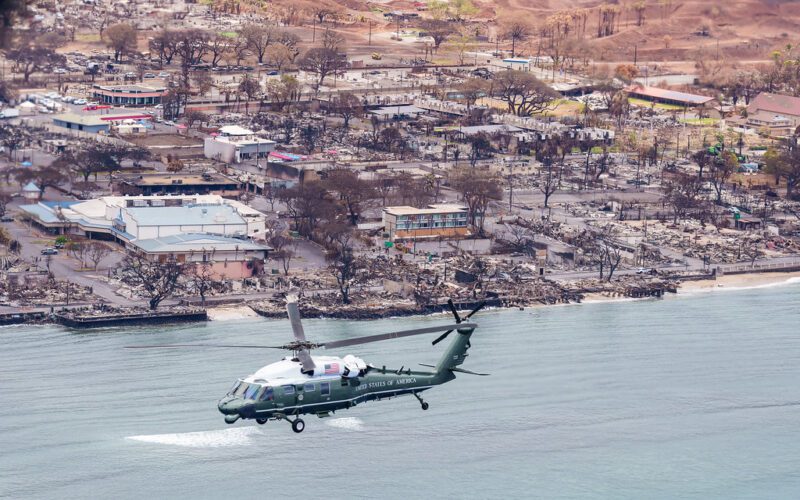Sign up here to receive The Yappie’s weekly briefing on Asian American + Pacific Islander politics and support our work by making a donation.
Thousands of Maui wildfire survivors living in FEMA’s non-congregate sheltering program are struggling to secure independent long-term housing options. With the program set to expire on April 10, the pathway to recovery for Lahaina survivors is unclear.
The Federal Emergency Management Agency (FEMA) continues to face backlash seven months after the Maui wildfires displaced thousands of people and destroyed roughly $5.5 billion of capital, including homes, buildings, and agriculture.
Recovery has been slow, and many displaced residents say the upcoming deadline for eviction from FEMA-sponsored hotels does not allow enough time for survivors to find their footing—especially those who lost their homes, livelihoods, and more in the fires.
- Roughly 3,558 people were still living in FEMA-sponsored hotels run by the American Red Cross as of early March, Honolulu Civil Beat’s Cammy Clark reports.
How it happened: In the aftermath of the August fires, the agency provided financial assistance to displaced residents for basic needs such as food and water, and placed impacted individuals and families in hotels and other alternative housing.
- But local residents said the short-term help came too slowly and didn’t provide a stable path to long-term recovery. Many who were displaced were already struggling with Hawai‘i’s unaffordable housing crisis.
- More than 5,000 people are still living “in limbo,” NPR’s Debbie Elliott writes.
The agency cites a variety of factors that have impeded efforts to move residents out of FEMA-funded housing, including a lack of available or handicap-accessible property in West Maui, long waits for FEMA inspections of available housing units, and unlivable apartment conditions.
- “There’s two studios and two one-bedrooms [in Lahaina] and that’s it,” FEMA program analyst Tracy McCauley told the Civil Beat. “I don’t have what you guys want. And it hurts us. It really does because we’re hearing [residents] on the phone saying, ‘I don’t want to go (outside West Maui).’”
- FEMA has joined the state, county, and nonprofit organizations in urging owners of short-term rental properties to help house survivors instead of tourists. It also said in January that it was working with Maui property managers and the mayor’s office to identify units that can serve as rentals for 18 months, the Associated Press’ Audrey McAvoy writes.
- Gov. Josh Green (D) and Maui Mayor Richard Bissen unveiled earlier this year a $500 million agreement to establish over 3,000 “stable housing units” for displaced survivors. FEMA committed to providing half of the funds needed for the project, titled the Maui Interim Housing Plan.
What to watch: The Army Corps of Engineers recently awarded a $159 million contract to Native Hawaiian organization Hui Huliau Technology Services to clear debris and ash from commercial buildings and demolish unsafe facilities.
- Yes, but: Less than a third of the commercial properties are registered for the program, in part because signatures are needed from every tenant in each building, Cammy Clark notes in a separate article for the Honolulu Civil Beat.
The Maui wildfires have also renewed calls for sovereignty from Native Hawaiians who point to the wildfires as the latest example of the state and local governments’ mismanagement of their homelands.
This story appeared as “The Big Story” in The Yappie’s March 27, 2024 newsletter.
The Yappie is your must-read briefing on AAPI power, politics, and influence, fiscally sponsored by the Asian American Journalists Association. Make a donation, subscribe, and follow us on Twitter (@theyappie). Send tips and feedback to [email protected].









